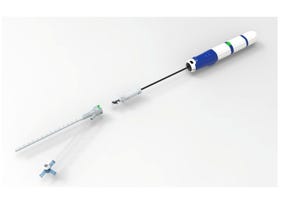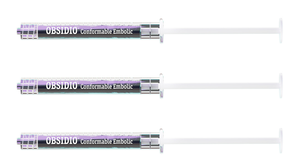The medical device industry just wants some clear direction when it comes to the key issues and the political conversation in 2012.
April 3, 2012
Advocating for Medtech Causes
|
Len Czuba's Hot Topic of 2012 Antimicrobials. “When I talk to companies that are developing antimicrobial products, all of a sudden it’s not FDA that they have to worry about, it’s the EPA. The EPA is concerned about what happens to the product after the useful life of the medical device—what happens to the antimicrobials once they get into the waste stream. FDA might be reasonable, but the EPA is not considered reasonable. It’s a new challenge of trying to do business in an environment where we’re now dealing with a different regulatory agency.”
Len Czuba is president of Czuba Enterprises Inc. |
In the medtech industry, there’s been an increase in polical activism at the local level via state-based trade groups. Thompson cites groups such as Life Sciences Alley, in Minneapolis, and the Indiana Medical Device Manufacturers Council, which have substantially increased their focus on local politics and working with members of Congress, versus traditional FDA regulatory topics. California and Massachusetts are also hotbeds for state and local activity.
Although industry associations AdvaMed and MDMA don’t publicly endorse candidates, they remain active in voicing their concerns of this year’s hot-button issues, namely the device tax, the economy, and investment in R&D, innovation, and job growth. Both associations remain active in working with politicians on a bipartisan level to educate them and the industry about how laws and regulations affect medical device companies and the overall healthcare industry.
Post-Election Hopes
“I think we’ll see some stability happen after the election no matter which way it goes,” Czuba says. “I think with the decision of the Supreme Court—whether the healthcare mandate is [ruled] constitutional—that will allow companies to eventually get rid of this uncertainty that we now face. I hope that if this healthcare bill doesn’t move forward that we continue to work on something that becomes a recrafted version of what we already had in place with public access of healthcare, and make it something that is a shared burden for everyone—not just the people who are paying taxes or have good insurance, but everyone that takes advantage of the system pays into it.”
Regardless of the outcome of the election, Bonifacio is advising companies to shift their focus to patient outcomes and cost-efficacy benefits. “The new way that devices, therapies, procedures, and services are going to be evaluated is truly going to be based on patient outcome and the cost to get to that outcome. That’s the one thing that I see as a constant coming out in the future.”
<< Part II: The Device Tax
Maria Fontanazza is managing editor of MD+DI. Follow her on Twitter @MariaFontanazza.
About the Author(s)
You May Also Like



